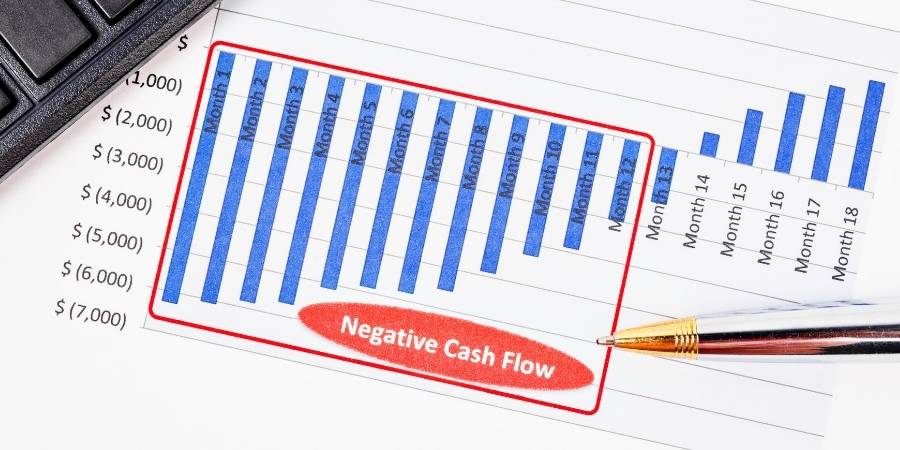What is Negative Cash Flow?
To understand the concept of negative cash flows ones must first understand what the term cash flow denotes. This is measure of what goes in and out of a business within a set period. Thus, for a business with a fit cash flow, the expenses match the income.
As such, negative cash flow occurs when a business uses more money then it generates or takes in within a specified period. The situation often occurs during the start of a business and can last for months or years as the firm tries to find stability in its operations.
While negative cash flows often point to the disparity in revenue flow, it is not an indicator of loss rather, a conflict between the expenditure and income. To gain better understanding of negative cash flows, owing to the disparity between its definition and naming, it is essential to understand its causes and as such its management. The section below outlines more information on negative cash flows.

Causes of Negative Cash Flow
All actions that result in low earnings for the business affect the cash flow negatively.
Low Profits
The mismatch between expenditure and income denotes negative cash flow and a businesses main source of income is profits. Factors such as low productivity, high operation costs and high cash flows may reduce the profits garnered and in turn led to negative cash flow as the income will be relatively low.
Incorrect Pricing of the Products
This directly affects the profits and therefore the income. Product pricing is challenging especially for small or new businesses. In order to gain its market share, a new business must offer lower prices which affects profit in the same way that high prices will affect reduce profits due to low sales. Both the alternatives impact the income generation abilities of businesses. If coupled with poor marketing strategies, negative cash flows are sure to occur in an effort to keep up with operations.
Expedited Growth
In most cases, investments are a positive for a business however, when they are a young or small, overinvestments can lead to negative cash flows. For instance, investing in high maintenance assets can force the business to operate in cash flow deficits. Also uncoordinated hiring, uncoordinated financial tracking, and unorganized operations can also affect the cash flow negatively.
Inability to Manage Account Receivables
This may stem from payments past due from customers. The outstanding receivables affects a businesses ability to pay their suppliers or manage other production needs, and overheads. In response business tend to spend more to maintain their operations.

Effects of Negative Cash Flow
Aspects of business that are profoundly important to its successes include revenue supervision, profits supervision and the management of cash flow. Negative cash flow can affect a business sustainability. The effects of a negative cash flow can include:
Stunted Growth
The management of negative cash flow can take the focus away from other challenges and strategies to foster change. This also influences the companies ability to increase cash flow which ensures its growth remains stunted
Increased Bank Charges and Interest Rates
Equity infusion and debt funding are the two major approaches to dealing with negative cash flows. Debt funding which if often the route taken by small and new business has consequences as there is the need to pay back interests putting a strain on the firms long term profitability goals.
Investors will be Displeased
Investors are essential to a business and they often look at the cash flow statements to direct their decision’s. The inability to manage cash inflow and outflow in the long run reduces chances of continued investments thus a loss in a vital source of funding.

How to Manage Negative Cash Flow
The management of negative cash flows is essential to foster sustainability. To manage the situation leaders must partake in activities such as the management of expenses and the creation of emergency budgets.
Reducing Expenses
One can accomplish this by constantly reviewing the expenses to establish which overhead and operating costs can be reduced without greatly influencing the firms agenda and growth.
Creating Emergency Budgets
The creation of such budgets help business to meet some expenses in times of crisis as opposed to taking from vital operational funding thus reducing or eradicating negative cash flows.
